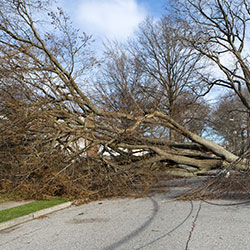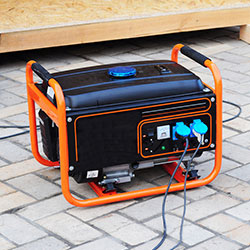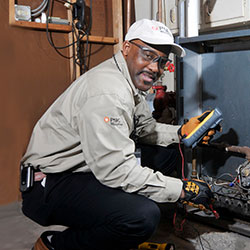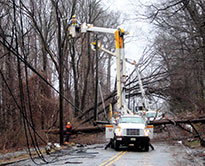Electric Safety Myths
Separate Fact from Fiction
Do electric lines automatically shut off when they break during storms? If a power line falls on your car, are you safe because your car has rubber tires?
Unfortunately, misinformation about electrical safety is rampant, and can be dangerous. Here, we'd like to give you the straight scoop on electrical and power line safety.
Test Your Knowledge
Below are some electrical myths we often hear when we're out in the community. See how well you do at separating fact from fiction.
- Tires are electrical insulators
FALSE. Tires are electrical conductors, not insulators. It is true that you are safe in your vehicle when a live wire falls on it. But that's because electricity always seeks any and all paths to ground. If you remain in the vehicle, a possible path of the electricity could be on the outside of the vehicle, through the tires, and into the ground.
- All power lines are insulated
FALSE. Ninety percent of outside power lines are not insulated. There may be a weather coating over the wire, but that will not protect you from electric shock. Further, the lines that are insulated are exposed to the rigors of weather, so you never know what condition the insulation is in. Remember, no power line is safe to touch or approach too closely, ever.
- Only high voltage is dangerous
FALSE. Voltage is the pressure that pushes electricity along, like water though a hose. Amperage (amp), the amount of electricity in any given spot, is what will hurt or kill you. It takes less than one quarter of one amp to put a heart into ventricular fibrillation (irregular beating). Most residents have at least 100-amp service coming into their houses. Many residents have 200-amp service.
- When a wire falls to the ground, it automatically shuts off
FALSE. Always assume that a downed wire is live. Even circuits that momentarily shut down may re-energize at any time.
- When a live wire falls, it makes sparks
FALSE. A power line sparks if it falls to the ground and does not make firm contact with the ground or other material. When a wire falls to the ground and makes firm contact, it will often make no noise or sparks, and will give the impression of being de-energized.
Remember, always treat a downed wire as energized until PSE&G has shut it off and stated that it is safe! See our Downed Power Lines page for more info.
- Wood is an insulator against electricity
FALSE. Wood is, in fact, a conductor, though not a good one. The molecules in wood are far apart, so it becomes difficult for electricity to jump from molecule to molecule. But the higher the voltage, the easier it is for electricity to move through wood. And if the wood is damp, it changes the equation and wood becomes a good conductor, even at low voltage.
So be careful standing on a wooden crate to turn on your main fuse box or when you use a wooden ladder.
- Household rubber gloves or rubber-soled shoes insulate against electricity
FALSE. Only 100% pure rubber insulates against electricity. Household gloves and shoes are not made of pure rubber. Often, to make these shoes more marketable and durable, additives are mixed in with the rubber-like material. That makes these gloves and shoes conductors.

Tree Trimming

Generator Safety

Gas Leaks and Outages























